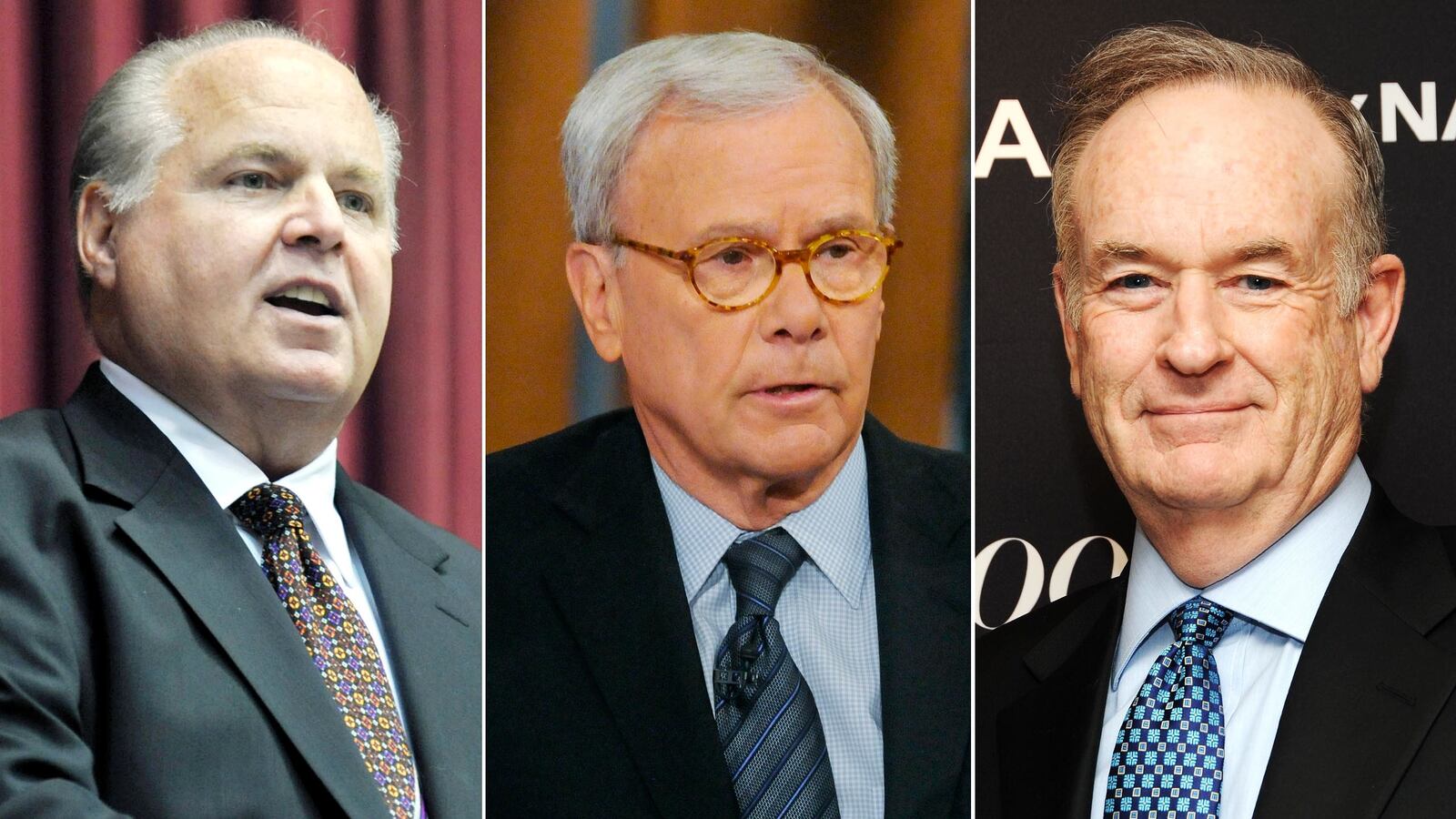Bill O’Reilly, by his own admission, was so “angry” that it was driving him “crazy.”
In the wake of the Boston bombing, he was upset at Tom Brokaw for saying the country should examine its use of drones that are killing civilians in Afghanistan, Pakistan, and Iraq, and turning young people against America.

“Let me get this straight, Tom,” the Fox News host thundered. “We shouldn’t use drones to attack al Qaeda leadership or Taliban terrorists hiding in the mountains of Pakistan? We shouldn’t do that? So how exactly would you fight the war against terrorism, Tom? Do you want to invade Pakistan?”
The ceasefire is over. The brief respite in our anger-fueled culture, suspended during a week of shock, sympathy, and community after the Boston Marathon attack, is history. Pundits and politicians are again pummeling each other over the bombing and lots of related issues.
Perhaps this isn’t surprising, given the rawness of these subjects and the polarized state of our politics. After 9/11, the country came together for many months, but the Boston carnage wasn’t of the same magnitude, and the return to business as usual has been far quicker.
Former Republican congressman Joe Walsh, appearing on MSNBC, declared: “We need to start profiling who our enemy is in this war: young Muslim men.”
Bob Beckel, the only liberal Fox panelist on The Five, went a step further, saying: “We may want to rethink now and say do we want to allow more Muslim students into this country, take a period of time, two years, three years, four years, and just stop that from happening.”
His conservative colleague Eric Bolling took aim at 60 Minutes for a profile of Dzohkhar Tsarnaev, saying, “CBS did everything in their power to humanize this killer, this terrorist … They had a girl who went to high school with him and said, ‘Oh, I had a crush on him. He was so cute. How can you not love him?’ is what she said.”
In similar fashion, Rush Limbaugh played a series of clips of what he called “the Drive-By Media trying to take the edge off of this by referring to Dzhokhar as just a kid.” After the final sound bite, in which New Yorker editor David Remnick referred to Tsarnaev as “a mixed-up kid,” Limbaugh said: “Yeah, just a mixed-up kid, totally normal American kid, out there smoking pot, watching YouTube, driving around in his Porsche, not liking America, totally normal kid, nothing to see here. Very sad, in fact. This poor kid, he’s got a tube down his throat. Just a normal college kid. This kid’s on a ventilator. My God, we need to feel sorry for him. Why do we do this?”
The vitriol has spilled over into the debate over immigration reform. Sean Hannity said that “if people are coming from countries where they grew up under Sharia law, I think we can make a safe assumption that they have been radicalized.”
On the same program, Ann Coulter, who says mosques should be under video surveillance, lamented that the younger Tsarnaev had been taken alive: “Why not just shoot up the boat? If we’re not going to talk to him and get any information about the cell, about any foreign influence, they should have kept shooting when they caught him in the boat. Just give him an automatic death penalty there.”
Since he didn’t die, maybe we can just rough him up. CNN’s Piers Morgan asked Greg Ball, a Republican state senator in New York, about this lovely tweet: “So scum bag #2 in custody. Who wouldn’t use torture on this punk to save more lives?”
When Ball insisted he was speaking for “red-blooded Americans,” Morgan reminded him that Tsarnaev is an American citizen. After some back-and-forth, Morgan asked: “Can you stop being such a jerk?”
“Because you don’t like it when you don’t have another bobblehead that you can beat up and treat like a coward?” the lawmaker shot back. So very enlightening.
Plenty of politicians are using the tragedy to promote their pet causes. Sen. Lindsey Graham mounted a public push to try Tsarnaev as an “enemy combatant,” which the Obama administration declined to do. Graham and three other GOP lawmakers, including Sen. John McCain, said that status would prevent authorities from having to read him his Miranda rights, which was done only after an initial round of questioning.
The gun control argument, which was muffled by the bombing last week, also has gotten a second life.
On MSNBC, Last Word host Lawrence O’Donnell tied the bombing to the gun debate, saying the “NRA’s effort to guarantee that American mass murderers are the best-equipped mass murderers in the world is not limited to murderers who use assault weapons and high-capacity magazines.” The NRA, he said, is “in the business of helping bombers get away with their crimes.”
It’s not that these questions—from gun control to suspects’ rights, from terrorism to profiling—aren’t legitimate issues for debate. And a degree of passion in our politics is healthy.
But the subtext here is that many commentators and officeholders need targets. If bad things are happening in the world, there must be someone to blame, someone whose malevolence or idiocy must be called out. Feuds and finger-pointing play well on cable.
Such a divisive approach fits nicely into the hyperpartisan atmosphere that permeates both politics and media these days. Many Fox viewers cheer when their hosts and panelists rip the liberal loons who are ruining this country, including the left-wing media. Much of the MSNBC audience applauds when that network goes after the right-wing troglodytes who would trample the Constitution. And candidates are practiced at hitting the hot buttons that fire up their base.
It’s a great way to seize attention and raise money. But a week after Boston, it all feels depressingly familiar.






